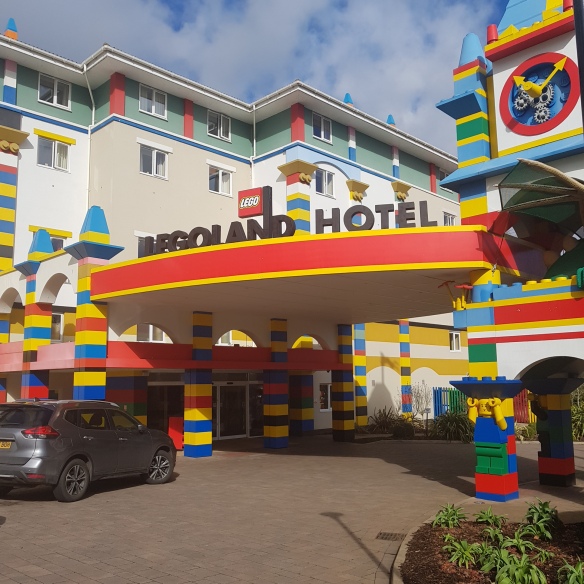By Diane Lightfoot, CEO of Business Disability Forum

Diane Lightfoot at the summer reception
Last week we held our annual Business Disability Forum summer reception where it was wonderful to to be joined by some new as well as some more familiar faces!
Our summer reception has historically been our Partner group reception but this year we wanted to open it up to members too and judging by the number of people in a room, that decision has been very well received!
This year’s reception – fittingly for the time of year – was on the theme of “Going Places” with a focus on summer holidays. Huge thanks to our Partner Sainsbury’s for hosting us and providing a selection of foods from around the world which certainly got us in the holiday mood! Our sponsor for the event was the Go-Ahead Group and we were delighted to have their support not only as a very important part of going on holiday is “getting there”, but also because we launched the initial findings from our accessible transport survey at the event.

Summer reception 2019
In May, we launched an accessible transport consultation as part of our “Going Places” campaign, titled “Getting There: How accessible is UK public transport in 2019?”. We wanted to find out more about disabled people’s experience of using tubes, trains, taxis, buses, trams, coaches, and planes travel whether for work or leisure. The results are based on the experiences of 236 people who got in touch with us to share their views. The results are perhaps not surprising:
Our headline finding is that inaccessible transport is preventing disabled people from going places.
Travel difficulties are preventing 4 out of 10 disabled people from going shopping and a third from going to work or going on holiday. At the same time, a quarter of disabled people said they found it hard getting to the GP or hospital.
The research found that:
- The most popular type of public transport used in an average month is train (59 per cent of disabled respondents use the train regularly), followed by bus (50 per cent), and taxi (34 per cent).
- 44 per cent said they have been prevented from taking part in leisure activities (such as going to the cinema, theme park, or exhibition) due to inaccessible transport.
- 38 per cent said they couldn’t go shopping.
- 34 per cent said they have been prevented from getting to work
- 33 per cent said they have been prevented from going on holiday
- 25 per cent said they find it hard to get to the places that help them manage their condition or get treatment (such as the GP, hospital, rehab or physio).
Our research is published a year on from the publication of the Government’s Inclusive Transport Strategy, which aims to create an equal access transport system for disabled passengers by 2030, and at a time of increased campaigning around the inaccessibility of public transport across the UK.
It shows the huge impact that inaccessible public transport is having on the lives of disabled people and the subsequent knock on effect on the economy. People are telling us that transport difficulties are making it harder for them to get to work. This is particularly worrying when you consider the growing numbers of organisations which are becoming multi-sited or are looking to relocate. We are also concerned that transport issues may be limiting the roles which disabled people feel they can apply for, ruling out those which require travel.
Inaccessible transport is also preventing disabled people from spending their income, by influencing decisions about where to shop and to spend leisure time, and whether to go on holiday. With the collective spending power of disabled people in the UK standing at £249 billion, this represents a significant loss to business.
But the other thing we are seeing is that one size doesn’t fit all. For example, lots of people are saying how easy airport signage and communications are, and then others are saying they can’t read airport signs and that departure boards are very inaccessible. What this tells us more than anything is that people are different! We all do things in different ways and need to use things differently. So, flexibility and a range of options is the key to the future of inclusive transport.
We are also really encouraged by the number of transport companies who have joined us as Members and who are really committed to making a difference for their disabled customers. We are seeing some examples of real innovation in this space, such as Network Rail’s approach to inclusive design, TfL’s refurbishment of priority seating to help raise awareness of the needs of people with non-visible disabilities and Gatwick Airport’s Lanyard scheme. Great ideas don’t have to be complicated; Brighton and Hove Buses have an award-winning scheme called “Helping Hand” that empowers bus users to discreetly and directly advise the driver of any assistance they need. The yellow card holds a brief written instruction for the driver that can be shown upon boarding the bus so that the driver is immediately made aware of the customer’s needs or requirements without the customer having to verbally communicate it. It’s been particularly useful for people with non-visible disabilities and is now being used off the bus as well – in taxis, shops and cinemas. For example, the “Please face me I lip read” can help anywhere at any time.
So, things are changing and changing for the better and we need to keep that momentum no matter what the future is about to bring us. Now more than ever business needs the best workers to get to and travel for work and we all need to be able to access rest and relaxation.
We will be using the research to make a series of recommendations to the Government as part of their current consultations on transport accessibility and as part of our Going Places campaign. You can follow the debate with the hashtag #BDFGettingThere
Last but not least, a huge thanks to all our Partners and Members for being on this Disability Smart journey with us and for driving change not just in your businesses but across society. Inclusion itself is a journey, not a destination, but thanks to your support we can make it easier for everyone not to only to be Going Places but to be Getting There as well.
Diane Lightfoot
CEO
Ps We are looking at the “Getting on” aspect of our Going Places theme with our new career development courses taking place this October and November, generously hosted by our Partner RBS in Edinburgh and led by Phil Friend and Dave Rees. There are a few places still available on this 3-day residential course – heavily subsided thanks to RBS’s generosity – so if you are interested please have a look here




































